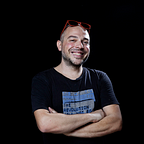Journalism and the Art of Focusing on What Really Matters
This is a personal story and it can be used as a metaphor of the journalism ecosystem in Italy. I’m writing it in English because I think it could be useful also for people outside my country, to better understand our media landscape.
I’ve been the Editor-in-chief of Blogo.it for four years and half. At one point, I was forced to quit since I was opposing the publisher progressive demand for more and more click-baiting-style-articles less and less paid. Nobody — nor the Italian Journalist Guild or the Unions — has helped me in that short but difficult struggle I’ve fought. I’ve always been a freelance, even when I was the Editor-in-chief. And freelances are often forgotten. I’m ok with that, I know it’s part of my game.
Some years ago I’ve co-founded a journalistic startup called Slow News. I don’t want to bother you with the ideas driving this project (I’ve written them, extensively, on Slow News website, on Slow Journalism — the book, I’ve written with Daniele Nalbone, and here on my Medium, in these two articles, for example). We are trying to figure out how to find different business models for journalism (different from the advertising one), focusing on a deeper, good, clean and fair journalism. That’s the reason why I’m working on a documentary film, too, on this topic.
It’s hard to be a journalistic startupper in Italy.
And it’s hard to produce this kind of documentary, too.
The reason is simple: it’s difficult to find fundings. It’s difficult to find the money.
But the shooting part of the film is almost finished. And at present, Andrea Coccia, Alessandro Diegoli, Andrea Spinelli Barrile and I, as partners in this crazy adventure, are proud of our Slow News concept and small but focused journalistic production.
We both work on and want to document innovation processes, new ideas in journalism, new business models and so on. We have a dream: to do our part, to find different possible solutions to the media crisis.
We met amazing colleagues and newsrooms all around the world: from Peter Laufer (professor of journalism at University of Oregon School of Journalism) to Helen Boaden (BBC News former director), from Frederic Martel (French author and sociologist) to Mark Thompson (The New York Times Media Company CEO), from Jennifer Rauch (professor of journalism at University of New York) to Julia Cagè (author of Saving the Media), and then Zetland, The Correspondent, America, Eugene Weekly, Flow and so on.
Due to this deep work and writings on these topics, I’ve been chosen by the U.S. Consulate in Milan for an International Visitors Leadership Program called “Responsible Journalism and Challenges of Disinformation”.
A month before my departure for this program, I’ve been contacted — with my colleague Daniele Nalbone — by the Dipartimento per l’Informazione e l’editoria. They were interested in our book and asked me and Daniele to be panelists in a meeting for journalists. The meeting was part of an initiative called Stati Generali dell’Editoria (which is, more or less, a way to discuss and explore the current media landscape in Italy). Of course, since it’s a political initiative, it’s also an excellent terrain for controversy. I thought about the opportunity to be part of this initiative: I care very much about my independence and integrity. But knowing that I would be completely free to expose my ideas, I accepted.
Since the meeting was scheduled the 4th of July, during my travel across the U.S., we organized a video-call. I had my speech exposing my ideas and proposes to change our landscape from a journalistic perspective. It was more or less 5 in the morning in Florida when I had the speech, so at one point, I wasn’t able to listen to the entire follow-up debate.
When I wake up, I figured out that my Slow News startup had become – in some way I hardly understand — part of the problem since we don’t apply journalistic contracts in our newsroom (that’s the criticism from Paolo Silvestri, segretario del sindacato Campano giornalisti, as reported by Prima Comunicazione). A statement from Raffaele Lorusso (FNSI) soon followed. He doesn’t mention me nor Slow News directly, but he speaks about «some of today speakers». So, since I’m one of those three speakers, I feel in someway mentioned.
That’s so surprising, for me!
I mean: we are a startup, right? We are four partners, all journalists. Each of us needs to have different jobs to simply survive and carry on. We are studying and working, learning and try to apply best practices not only as journalists but also as little entrepreneurs. Moreover, we still don’t know how to be sustainable. We don’t know if we will ever be able to be sustainable. So, we simply can’t hire someone. It would be crazy and irresponsible: we have no investors nor cashflow to guarantee someone a regular job. How this can be part of the problem? How this can be part of the huge crisis of western countries journalism?
We have a simple dream: to figure out alternatives, to be good journalists, to serve our readers, our community. When we will be able to do this in a sustainable way – we hope very soon, even if it’s difficult – we will very happy to hire people. But it will happen only when we will be sure to be able to guarantee anyone a properly-paid job. Since that moment, it’s more responsible to stick our necks out.
And know, can we focus on real problems and possible solutions, please?
––
I wrote these thoughts on 2019, July the 4th, in the hall of an Hotel in St. Petersburg, Florida, while I was part of the International Visitors Leadership Program (IVLP). Of course, these words reflect my only and personal opinion.
